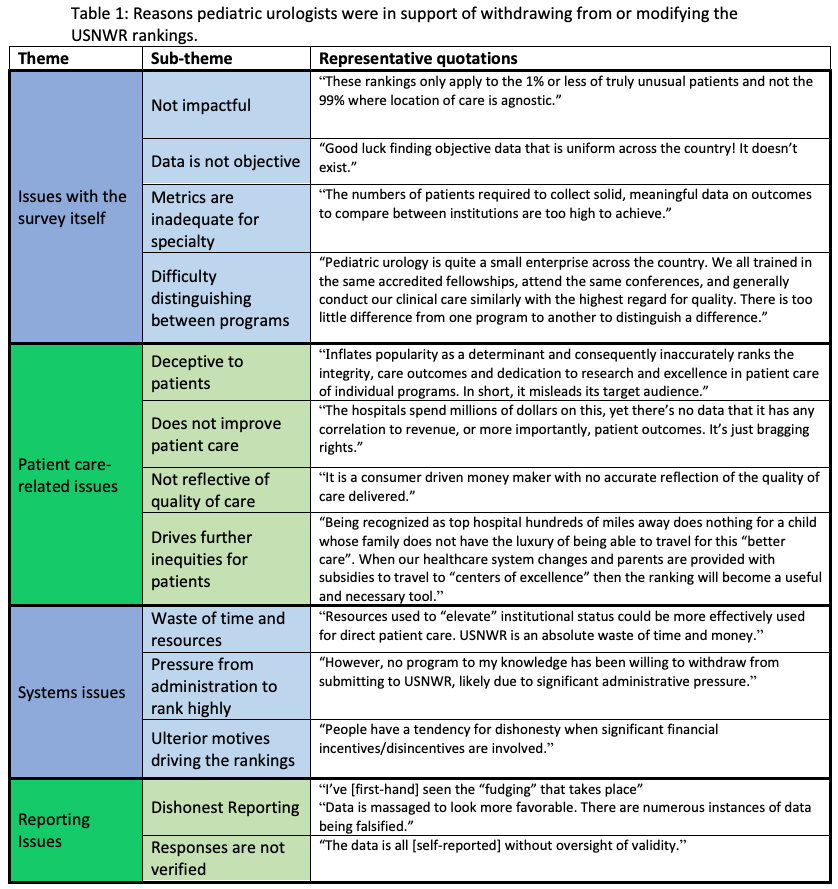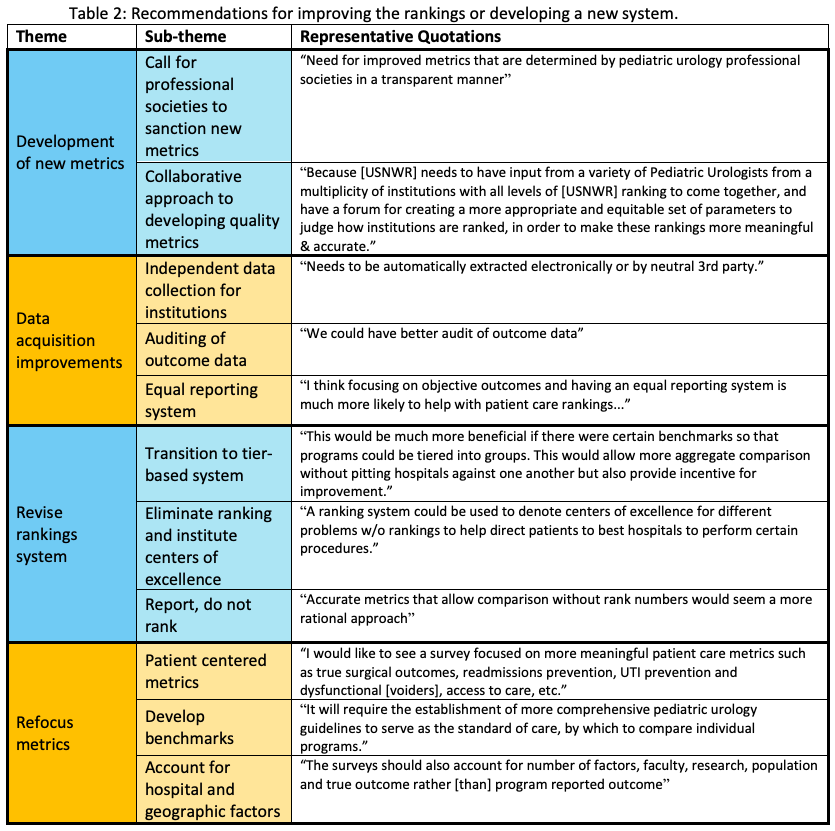Pediatric Urologistís Attitudes Towards the U.S. News & World Report Rankings
N. Valeska Halstead, MD, MPH, David I. Chu, MD, Emilie K. Johnson, MD, MPH, Earl Y. Cheng, MD, Ilina Rosoklija, MA.
Ann & Robert H. Lurie Children's Hospital of Chicago, Chicago, IL, USA.
Background - The United States News and World Report (USNWR) pediatric urology rankings have been published annually since 2009, advertised as a tool to help patients find skilled care. However, there is disagreement on the value and use of the rankings in pediatric urology. We aim to better understand and characterize the attitudes of practicing pediatric urologists regarding the USNWR survey and rankings.
Methods - An anonymous, web-based survey about the USNWR pediatric urology rankings was emailed to candidate and active members of the Societies for Pediatric Urology. The survey was developed iteratively by the study team, and contained both quantitative and qualitative elements. This study focuses on the qualitative survey responses; full quantitative results will be reported separately. Free-text responses about 1) opinion on withdrawing from the rankings, 2) development of a survey that adequately distinguishes between programs and 3) any additional thoughts on the topic were solicited. Thematic qualitative analysis of free-text responses was performed by two coders using an inductive and deductive approach. Codes were compiled and summarized into themes and subthemes, with representative quotations.
Results - 264/528 (50%) pediatric urologists completed the survey (70% male, 75% academic). Most (226/264, 86%) expressed that they would support organized efforts to withdraw from the rankings. A total of 204 (91%) pediatric urologists provided free-text responses, with many themes emerging. Table 1 outlines themes regarding discontent with the current USNWR rankings system and reasons cited for wanting to withdraw or substantially modify the metrics and ranking system. There was a notable underlying theme of pessimism about the survey and concerns about dishonest reporting. Those who saw value in the USNWR ranking system indicated that: 1) it has led to improvements in care, 2) data can be useful for benchmarking, and 3) rankings can be leveraged for seeking hospital financial support and investment. Many responders also believed an improved system could be developed and provided recommendations on how to proceed (Table 2). Among the recommendations were to 1) have a collaborative approach to developing a new system, 2) enable more reliable data acquisition and reporting, and 3) more focus on concrete patient-centered metrics.
Conclusions - Pediatric urologists expressed multiple concerns about the validity and value of the current USNWR ranking system, and most would be supportive of withdrawing altogether. Despite the overall pessimistic view, many also identified recommendations for improving the system and ways to refocus the metrics to improve validity and patient outcomes. Pediatric urologists believe that significant improvements in the USNWR ranking system are needed if our field continues to participate, and calls for a collaborative approach for future survey and metrics development.


Back to 2023 Abstracts
